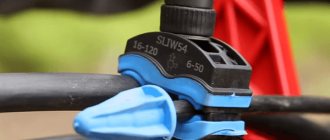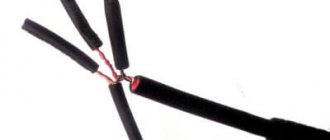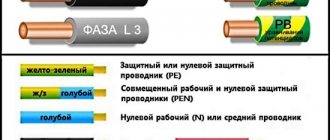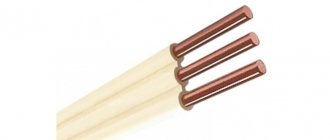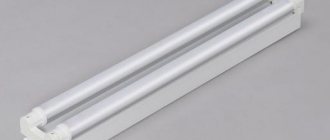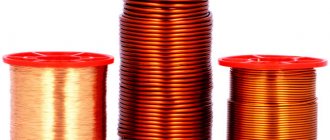How to protect wires in your home from rodents and pets?
/ Articles / How to protect wires in the house from rodents and pets?
- 1. Effective rodent control
- 2. Pet protection
There are two types of pests that can cause damage to your home's electrical wiring. The first type includes rodents that are found everywhere: in openings in the floor, roof, ceiling.
Rats and mice can chew through the insulation, leaving the house without electricity. Pests of the second group are domestic animals, and in particular cats and dogs. Our pets have a great interest in dangling cords and can chew them in the plug area.
Read on to learn how to protect wires and cables from cats, dogs and rodents.
Effective rodent control
If the installation of hidden electrical wiring was carried out in an empty pad under the floor or in the gaps between the ceiling slabs, then you may soon experience trouble associated with mechanical damage to the cable lines. Such damage occurs due to the fact that rats (or mice) chew through the insulation, as a result of which the electrical network fails. As a result, you also have no electricity, and the animal says goodbye to life.
You can protect wires from rodents in the following ways:
If the route runs between ceiling tiles, carefully seal all holes with mortar. This will prevent pests from reaching vulnerable areas of the cable line. If electrical installation is carried out in the floor, pour a concrete screed. In this case, repairing the route will be difficult, but the problem with rats will be solved immediately. You can use an armored cable, the insulation of which will be beyond the strength of animals, but in this case you will have to pay a considerable amount of money. One such option is the AVBbShv cable, but it is better to use a copper conductor. Let's go back to the ceiling again. In order not to cover up the gap, you can make new grooves for laying the route. In this case, the issue of protecting wires from rodents will also be resolved. Well, the last effective way is to place the current-carrying route in an iron pipe. Suitable if electrical installation is carried out under the floor, because Placing pipes into the wall will be problematic and unwise.
There is another option for protecting wires and cables from rodents - using a conductor whose insulation is treated with a special poison that prevents the negative effects of rats. The problem is that such poison can also harm human health, and the cost of the product will be much higher.
Of all the listed options for protecting electrical wiring, we recommend giving preference to an armored cable or, if possible, a metal pipe. By the way, to prevent moles from damaging the cable in the ground, be sure to place it in a metal pipe. I don’t think it’s worth talking about the need to use an armored version!
Pet Protection
In this case, the problem is not that the cat or dog will chew the cord and you will be left without light for a while, but that if the insulation is damaged, the pet can simply be electrocuted. As a result, two big troubles arise that could easily have been avoided.
For those who don’t know what to do if a cat or puppy chews on wires, we provide some useful tips:
Try scrubbing the insulation with a sponge and detergent or pepper. It is unlikely that your pet will like the taste and smell of the product. There is also a special remedy - “Antigadin”, which copes well with the problem. You can protect the cord with tin foil or double-sided tape, which will also effectively solve the problem. Hide any dangling wires by moving furniture toward the wall. Hang the entire cable line higher on the wall so that the animal cannot reach the live path. Buy your cat a toy that will interest him more than the plug.
Please note that spraying a cat with a water pistol, as recommended by some authors, is strictly prohibited. Do not forget that you are dealing with electrical appliances, and water in this case can cause a serious accident!
You can watch some more effective measures to protect wiring from dogs and cats in the video:
You can watch some more effective measures to protect wiring from dogs and cats in the video:
How to stop your pet from chewing cords
That's all I wanted to tell you about protecting wires and cables from rodents and pets. If you have a decorative rabbit, ferret or chinchilla living in your apartment, then it is best to hide the wires rather than try to treat the insulation with special means. We hope that now you know how to protect wires from cats, dogs and rodents!
How to stop your pet from chewing cords
15.12.2016
Method 1 how to protect wires from a cat
One of the most effective ways to protect wires from cats is to hide everything as much as possible in a special sheath. You can use it as:
- corrugated tubes;
- plastic boxes and cable channels;
- baseboards with cavities inside;
- plumbing rubber and metal hoses.
You can also fix the wire on the wall using adhesive tape or hangers at a height of about 50 cm, where the animal cannot reach it. In general, if you already have a pet and are planning renovations, think about where you will hide the communications so that they do not attract the cat and spoil the interior.
If a cat shits anywhere
Felines are one of the cleanest creatures
If a cat is not sick with anything, and suddenly starts shitting everywhere, it means it is attracting attention. Something needs to be done about this, and as quickly as possible, before this behavior transforms into a bad habit.
- To determine the cause of a cat's unclean behavior
, you need to observe how she uses the litter box and the location of feces and urine in it. If there is constipation, she will no longer come to the tray and will only shit outside of it - a negative painful experience will affect her. In this case, the right decision would be to consult a veterinarian. - The reason may be completely banal
. For example, if a cat shits on the bed, it doesn’t like the tray or its location. It may be cramped, then the cat will definitely not go there. The same negative attitude towards the litter box will occur if the cat is somehow dissatisfied with the litter. Some people don't like it woody or strongly scented. The solution to the problem lies in changing the tray and, accordingly, the filler.
A cat's lack of confidence can also cause unscrupulous behavior. To assert itself, a cat can mark territory that it considers its own. This problem occurs mainly with cats picked up on the street. Giving your pet confidence will help you cope:
- the cat feels more confident where there is a lot of food. A solution could be several cups of food placed in different places; Your own scent will also give your animal confidence. You can rub the cat with a soft cloth, and then wipe all surfaces in the area where the cat is most often located.
Method 4 how to protect wires from a cat
If you are afraid that you or your pet will be allergic to the chemical components of the spray, you can replace this product with others, but also with a strong odor or bitter taste that cats do not like. This will help you:
- citrus juice and peels: lemon, orange, pomelo;
- mustard and pepper;
- essential oils;
- aloe juice
The pungent smell will prevent the cat from coming close to the place where the wires are located, and the bitter taste will scare away if the animal decides to chew something.
Protection from cats, dogs and other pets
In a residential area, power lines must be protected from pets that live hand in hand with humans - cats, dogs, rabbits and hamsters. The most pressing problem is the category of kittens and puppies who love to play with absolutely anything that attracts them, including the electrical cable. To them, a dangling or dangling wire seems like an ordinary toy that they just want to play with.
To avoid damage to insulation by pets, use the following measures:
- Treat the cable with a special spray that acts as a repeller for cats, dogs and other animals. The main disadvantage of this method is the specific smell, which can become an obstacle not only for the animal, but also for its owners.
- If protecting the wires with a spray does not suit you, rub the wires with natural spices with a strong smell - pepper, citrus fruits, vinegar, detergent, etc. It’s unpleasant for pets to even be near such aromas, so they will be happy to stay as far away from the wires as possible.
- For protection, wrap the wire with double-sided tape - such braiding is extremely unpleasant for both cats and aggressive dogs. In addition to scotch tape, regular foil will work for the braid, which will also become a barrier for pets.
- Another great way to protect yourself is to raise the wire higher on the wall or furniture, where it will become inaccessible to the animal. In most cases, this can be done without installing additional dowels and auxiliary structures.
- Another protection option is to rearrange the furniture. All interior elements must be positioned in such a way that they cover hanging wires or simply hide cords and carriers behind already installed chairs, cabinets and sofas.
- In addition to the above options, you can use regular toys as an alternative to play. Bright “pets” with a squeaker or bell will be much more attractive for your dog or cat than electric wires.
It should be noted that on the Internet you can find other suggestions on how to protect wires from cats and rodents, but not all of them should be used.
Method 3 how to protect the wire from cats
In almost any pet store there are sprays of different price categories designed to repel animals. Manufacturers have tried to create ready-made and quite effective means for owners who are tormented by the question of how to protect the wire from the cat. As a rule, such sprays have a pronounced lemon scent, which people with moustaches really don’t like. The liquid is sprayed onto the wires and renewed periodically. The same means can be used to prevent the cat from tearing wallpaper or furniture.
Possible consequences of playing with wires
How to stop a kitten from biting: reasons for this behavior
We figured out how to protect electrical wires from the cat. But what to do to avoid negative consequences? In some cases, this fun leads to the inevitable death of a pet. Therefore, to keep your animal safe, you need to follow some tips:
- In places where the wire is accessible to the animal, it is sometimes necessary to check its integrity.
- If the wire is not insulated, it should not be left in the room with the animal even for a minute.
- If the house is undergoing renovations, the animal must be moved to another place during this time.
Consequences of playing with cables
But if the pet could not be saved and he was electrocuted, then the following precautions must be observed:
- You cannot handle an animal without gloves;
- Don’t panic, but react quickly; every second can cost your pet’s life.
Worth remembering! The owner's quick reaction will help save the animal's life, so the main thing is not to panic.
Effective rodent control
If the installation of hidden electrical wiring was carried out in an empty pad under the floor or in the gaps between the ceiling slabs, then you may soon experience trouble associated with mechanical damage to the cable lines. Such damage occurs due to the fact that rats (or mice) chew through the insulation, as a result of which the electrical network fails. As a result, you also have no electricity, and the animal says goodbye to life.
You can protect wires from rodents in the following ways:
- If the route runs between ceiling tiles, carefully seal all holes with mortar. This will prevent pests from reaching vulnerable areas of the cable line.
- If electrical installation is carried out in the floor, pour a concrete screed. In this case, repairing the route will be difficult, but the problem with rats will be solved immediately.
- You can use an armored cable, the insulation of which will be beyond the strength of animals, but in this case you will have to pay a considerable amount of money. One such option is the AVBbShv cable, but it is better to use a copper conductor.
- Let's go back to the ceiling again. In order not to cover up the gap, you can make new grooves for laying the route. In this case, the issue of protecting wires from rodents will also be resolved.
- Well, the last effective way is to place the current-carrying route in an iron pipe. Suitable if electrical installation is carried out under the floor, because Placing pipes into the wall will be problematic and unwise.
There is another option for protecting wires and cables from rodents - using a conductor whose insulation is treated with a special poison that prevents the negative effects of rats. The problem is that such poison can also harm human health, and the cost of the product will be much higher.
Of all the listed options for protecting electrical wiring, we recommend giving preference to an armored cable or, if possible, a metal pipe. By the way, to prevent moles from damaging the cable in the ground, be sure to place it in a metal pipe. I don’t think it’s worth talking about the need to use an armored version!
The cat chews the wires
Many people complain that their furry pets constantly chew through various wires. I am surprised and even outraged by how indifferent and lazy people are. They worry more about their things than about the life of the animal.
If the cat chews the wire, then you are to blame, not the cat. You cannot punish or beat an animal for this. These will not achieve anything, but will only cause physical and mental injury. It is IMPOSSIBLE to beat a small and defenseless animal!
Try to distract the cat from this activity. You can try scaring the cat with compressed air from a can to clean the computer from dust. Usually cats are afraid of this, because... Hissing sounds in a cat's language mean threat. But this is also not a solution, because... cats are very smart and cunning. They may chew on wires when you don't see it.
What to do if a cat chews wires?
Perhaps your cat lacks substances such as vitamins, iron, or taurine, which is why there is a need to chew something. Buy her some rubber toys. More often with her. Maybe the cat is chewing the wires from lack of attention.
We have one cat who chews everything: cardboard boxes, furniture, and wires. How many keyboards and computer mice he damaged, only we know. Unfortunately, it’s too late to re-educate him, because... He came to us as an adult. But how he ended up with us is a different story. But there is an assumption that he was thrown out of the window precisely for this bad habit - chewing wires.
I had to buy a wireless mouse and keyboard. I just can’t find the headphones yet. You have to be constantly on guard and remember to hide everything.
What we didn't do. They smeared the wires with mustard and rubbed them with aromatic oils, but all this was not convenient, and did not last long.
There are many things in our apartment that are different from everyone else's. For example, we never leave shoes on the floor. Everything is hidden in special drawers. Clothes are also hidden, otherwise they cannot be cleaned of cat hair.
We even turn off the gas constantly, after one day one of the cats jumped on the gas stove and somehow opened one of the taps. It's good that this happened with us. We have all the wires either under the ceiling, or in special protective boxes or in rigid corrugated tubes. Yes, it’s not always convenient, but we are calm about the lives of our pets.
Collect in large bunches
Collect all the cables into one thick bundle using a tie - quite often this is enough, because the pet is not interested and uncomfortable in gnawing on something that does not fit in its mouth.
Cover with a special shell
One of the most cost-effective and reliable ways to protect cables from pets is to securely close them in special protective boxes, tubes, corrugated tubes, etc.
How to protect the Christmas tree from dogs?
Dogs are much more curious than cats, and besides, they are physically stronger and can knock over a Christmas tree with a running start. Therefore, protection will require much more effort. Here are some proven methods:
- Secure the New Year's tree on a hill. This could be a high table or cabinet. Some careful owners even hang the spruce from the ceiling or horizontal bar - another ingenious solution.
- Hang decorations only on the top of the tree so your dog can't get to them.
- In a house with large pets, you can find an alternative and abandon the traditional tree - for example, it can be replaced with an installation on the wall, it also looks beautiful and perfectly conveys the festive mood.
- As protection, you can use special sprays. The specific smell will scare away your four-legged friend and allow you to calmly enjoy the green beauty.
- If all else fails, you can put a small decorative Christmas tree or fir branches on the shelf. Miniature trees look no worse than large ones, and they smell nice. You won't have to worry about broken toys, and you'll be in a great mood for all the holidays.
- Protect all wires and sockets with covers to prevent the dog from chewing them. Safety precautions are the main rule when installing and placing electric garlands, especially if there are animals and children in the house.
- Buy your pet a treat and let him chew on his favorite bone or toy instead of a Christmas tree.
If no means help, you are not confident in your four-legged friend, or you have a puppy, perhaps you should completely abandon the elegant beauty.
There are many options for decorating your home, for example, you can hang a garland on shelves or curtains, decorate a chandelier with New Year's balls, or paint the windows and mirrors in your apartment with artificial snow.
Pet Protection
In this case, the problem is not that the cat or dog will chew the cord and you will be left without light for a while, but that if the insulation is damaged, the pet can simply be electrocuted. As a result, two big troubles arise that could easily have been avoided.
For those who don’t know what to do if a cat or puppy chews on wires, we provide some useful tips:
- Try scrubbing the insulation with a sponge and detergent or pepper. It is unlikely that your pet will like the taste and smell of the product. There is also a special remedy - “Antigadin”, which copes well with the problem.
- You can protect the cord with tin foil or double-sided tape, which will also effectively solve the problem.
- Hide any dangling wires by moving furniture toward the wall.
- Hang the entire cable line higher on the wall so that the animal cannot reach the live path.
- Buy your cat a toy that will interest him more than the plug.
The cat chewed the wires - what to do?
If the cat does chew the wires, there is no need to shout or swear at it. Any punishment will lead to the fact that the pet will be offended and begin to harm out of spite. If a furry bully is caught chewing on cables, you can clap your hands or make some loud noises to scare the animal away.
The sooner you stop your cat from accessing the wires, the better it will be for everyone.
Then you need to check the integrity of all wires. It must be remembered that a damaged cable can cause a fire, and therefore it is better to repair it immediately. After checking, you need to remove all wires that your cat might chew from within reach to avoid further damage.
To prevent a similar situation from happening again, it is necessary to analyze the pet’s behavior. To do this, you can answer a number of questions:
How long ago did this start? Did the purr's diet change during the period when he began to show interest in cords? Is there enough time for your pet? Do his owners often play with him? Does your cat have toys to which she can turn her attention?
Weaning off wires can take quite a long time and the older the animal, the longer it will take for him to wean off the habit. Therefore, owners of inquisitive cats need to be patient and try to identify the root cause of their pet’s behavior.
Re-educating a cat will take months, so you should be patient.
If the cat shows interest not only in the wires, but also itches on toothbrushes and combs, then it needs to be shown to the veterinarian. Most likely, she simply has problems with her teeth, which is why she tries to scratch her gums. The veterinarian will be able to examine the purr, clean the teeth, and also determine whether the animal is eating a sufficiently balanced diet.
If the cat chews everything that is allowed and what is not allowed, then you need to think about going to the cat dentist
Provide your pet with an alternative
Pets that chew cords are often bored, frightened, or stressed.
If your pet is experiencing stress for any reason (moving to a new place, long journey, new people in the house), he needs to pay more attention, feed him tasty food more often and show your care in every possible way. In all other cases, you can offer your pet an interesting toy that he can switch to instead of wires.
Where to get:
- Wooden sticks for cats, 55 rubles for 5 pieces →
- Toy feeder, from 256 rubles →
- Rubber ball with holes for food, from 152 rubles →
- Squeaky toy for dogs, 122 rubles →
What tricks do you know? Share in the comments.
Make the wires unattractive to the cat.
Make wires tasteless
- spray or rub them with substances that are unpleasant for cats. You can use both purchased and homemade solutions. Hot sauce, lavender oil, citrus paste, vinegar, garlic, cayenne pepper, soap, etc. work well. Some people use sports ointments (menthol-scented) or deodorants. Before connecting the cord, make sure that the applied substance is completely dry. Do not forget to periodically “renew” the applied solution. Avoid using salt; many cats love to lick it.
Place the wires in a protective plastic tube
, discouraging the desire to chew it. Such tubes are sold in pet stores - they protect the wire well and have a citrus smell, which cats do not like. They are easy to put on the wire; there is no need to change them later.
Wrap the wires with tape
- Both foil and double-sided tape will do. In the version with foil, the cat will have an alkaline taste in their mouth, and they will not want to chew the tape, since they hate sticky objects. The disadvantage of this method is that the sticky surface collects dust.
How to stop a cat from chewing wires.
Although cats are less likely to chew on wires than dogs, the habit is quite common. It should be clarified that kittens usually chew cables, especially during teething, and even the most devoted “fans” of wires, as a rule, outgrow this desire. However, if your cat is seen engaging in such activities, the first step is to take every precaution to ensure that the cat is not in danger, and then try to wean her from repeating such actions. It is important to understand that when a cat chews or bites wires, the consequences can be very serious - the animal can receive a severe electric shock or suffocate from entanglement. So, what should you do if your cat chews on wires?
Minimize the length of available wires.
Check your home for any dangerous wires for your cat. Every electrical device has the potential to pose a hazard if a cat is able to jump on or approach it. Particular attention should be paid to cords from household appliances and computers in places that are inaccessible to humans, but accessible to cats.
(for example, behind heavy objects such as refrigerators and cabinets), as well as on wires used temporarily (for example, from Christmas tree lights, heaters, etc.) and electrical outlets.
Try to keep the unprotected cable length as short as possible. The most vulnerable parts of the wire are the attachment points
to the plug and the appliance itself, as these are particularly difficult to protect. Check them regularly.
If the distance from a household appliance such as a refrigerator or washing machine to a wall with an electrical outlet is wide enough for a cat to climb into, you need to take precautions to protect the associated electrical cords and outlets.
Wires of unused electrical appliances must be removed from sockets.
, and when they are working, make sure that the cat cannot get close to them. You shouldn’t leave unused appliances in accessible places if they can be carefully collected and hidden - they will not only remain clean, but also not chewed on.
Hide the wires.
Rearrange furniture to provide protection for hanging wires that may move. Block gaps between the floor and the bottom or the wall and the back of electrical appliances. Remember that cats are capable of getting into smaller holes than you might imagine. In addition, the cat may move objects that are not heavy enough or poorly secured. Hide all the wires
, which are possible. All unused wires should be folded and hidden.
Consider going wireless
wherever possible, limiting it to power cords and placing them in areas inaccessible or protected from the cat.
Keep chargers for phones and other small appliances in locked boxes or drawers - this will make it impossible for your cat to access the most attractive thin wires. Placing corded devices in boxes (with holes cut out in the back) will also help hide the visible cords and reduce the likelihood of your cat chewing on them.
Secure any dangling wires
so that they could not dangle freely - this can be done by attaching them to the wall and baseboards using adhesive tape.
Dangling wires are very interesting to cats, but well-secured wires are perceived as part of a wall or, for example, the back wall of a table and do not attract attention. If there are several wires, it makes sense to fasten them together with
special clamps or just electrical tape - the cat is much less interested in a thick bundle than individual wires.
If the wires are long, they can be placed in special boxes
, which are sold in hardware stores. The boxes are available in various sizes and colors, so choosing the right ones will not be difficult. The boxes can be attached to walls or furniture, or they can simply lie there, protecting the wires collected in them from the cat. In any case, the cat will not be able to bite through the plastic surface of such boxes.
Make the wires unattractive to the cat.
Make wires tasteless
- Spray or rub them with substances that are unpleasant for cats. You can use both purchased and homemade solutions. Hot sauce, lavender oil, citrus paste, vinegar, garlic, cayenne pepper, soap, etc. work well. Some people use sports ointments (menthol-scented) or deodorants. Before connecting the cord, make sure that the applied substance is completely dry. Do not forget to periodically “renew” the applied solution. Avoid using salt; many cats love to lick it.
Place the wires in a protective plastic tube
, discouraging the desire to chew it. Such tubes are sold in pet stores - they protect the wire well and have a citrus smell, which cats do not like. They are easy to put on the wire; there is no need to change them later.
Wrap the wires with tape
- Both foil and double-sided tape will do. In the version with foil, the cat will have an alkaline taste in their mouth, and they will not want to chew the tape, since they hate sticky objects. The disadvantage of this method is that the sticky surface collects dust.
Redirect your cat's attention.
Startle the cat with some sound or movement
. If you catch a cat playing with wires, you can sharply shout “No!” or clap your hands loudly. You can spray your cat with a water gun if she goes to play with the wires. Of course, we must not forget that water should not get on electrical appliances.
You can use scarecrows with motion sensors. Toys that make noise when they move (for example, a frog that jumps and croaks) are great - place them in off-limits areas so that it will trigger every time the cat reaches for the wires, for example, under a computer desk. Sounds and movements must be loud and unexpected enough to scare the cat away, otherwise there is a chance that the cat will quickly get used to them and ignore them.
Methods for weaning kittens from playing with wires
It is better to start taking action as soon as the cat shows interest in the cables. The longer he is allowed to play with the wires, the more difficult it will be to wean him off. There are several proven methods that will help stop this “disaster”.
Special sprays
A special anti-gryzin spray is sold in veterinary stores. The liquid has a citrus scent that repels cats. You need to spray the reins with anti-gnosis and the kitten is unlikely to want to approach them after that
The same drug can be sprayed onto other objects from which the cat’s attention should be diverted.
Wire insulation
If possible, it is better to hide all cables. Today there are many special devices that allow you to disguise wires: cable channels, tubes, corrugated tunnels.
Of course, not every home can use such structures. Therefore, the method is proposed as one of the options.
Use of improvised means
Strong odors will help stop your animal from chewing wires. Cats absolutely can't stand scents.
- citrus fruits;
- cinnamon;
- vinegar;
- ammonia;
- colognes.
Any of these products can be used to treat the wire and the animal will not come close to it. It is also useful to rub the cable well with something extremely unpalatable to the cat: mustard, hot pepper, aloe juice.
Sound repellent
Many people know that cats do not like loud noises and are very frightened by them. If your cat is chewing on wires, you can try tying a loud baby rattle to them. When the cable moves, it will make a sound and scare away the pet.
How to protect wires from rodents
As a rule, people wonder how to protect the wires in the house from rodents only if they are installed in empty places, on a hill, in a basement or barn. Rodents or mice often chew through the insulation, so all the electricity in the house simply goes out. Of course, the animal loses its life, but does this change any meaning, since you can fight this from the very beginning. This way you will save yourself from unnecessary problems.
You can protect wires and cables in your home from rodents in the following ways:
- If electrical installation is carried out in the floor, we recommend making a screed for the heated floor. Of course, these are unnecessary expenses and problems during installation, but this way you will definitely protect yourself.
- The wiring between the ceiling tiles can be carefully sealed with mortar, so rodents will not be able to do anything bad. You must understand that everything needs to be sealed perfectly, otherwise there will be zero use.
- The best option is to use an armored cable; rodents will not be able to chew through it. There is also a minus - such a cable costs a lot of money.
- If you don’t want to spend money on an armored cable, we recommend doing the wiring in pipes. In such a situation, no animal will be able to do anything with your wires and cables.
Note! On the Internet, we often come across a method where it is recommended to treat the cable with poison. We do not recommend doing this; such poison causes serious harm to the human body, especially if the cable is lying in the house or attic.
The simplest and most reliable way is an armored cable; you can safely use it. In general, you must understand that it is easier to kill all the rodents than to do such powerful wiring. It will be easier, better and more effective. Also read symbols on electrical diagrams.
Is there another way to get a cat?
Stopping your pet from chewing wires
Cat owners should not ignore their pet’s increased interest in cables, because it can lead to disruption of the gastrointestinal tract due to fragments of insulation or the wire itself getting into the digestive tract. And increased interest in the cords of electrical appliances can cause an electric shock, which can lead to the death of a pet.
Chewed wires mean not only lost internet, but also cat poisoning
There are several ways to stop your cat from playing with wires:
- Remove wires from view. If the pet does not see the cable, it will not have the desire to play with it;
Furniture stores offer many gadgets that allow you to hide wires from a cat's gaze.
- Place chargers and headphones at a level inaccessible to the animal. It is also better to insulate the gaps between the wall and household appliances, because cats are able to crawl through even a small hole to reach their favorite toy;
- The use of special repellers with a characteristic odor. Such a substance can be ordinary mustard or lavender oil. Their smell is unpleasant to the animal, and therefore it will not play with things that smell like that. Another excellent remedy is citrus essential oil - orange, lemon, tangerine or grapefruit. Special substances contained in citrus peels repel cats. If there is no essential oil, you can simply rub the wire with lemon peel. This method is very convenient, but the smell needs to be refreshed periodically, because it gradually disappears. More information about smells that repel cats can be found on our portal;
Ordinary lemon peels placed in the area of the wires will help keep them intact
- Use of special veterinary sprays. One of these means is “Anti-gryzin”;
- Use of aloe. Aloe juice is very bitter, and therefore the cat, once confronted with it, tries not to chew the tasteless wires anymore. But such a remedy can provoke excessive salivation, and therefore after using this method it is recommended to rinse the animal’s mouth. Since they don't like to rinse it, drinking plenty of fluids is a good alternative;
Aloe juice has a similar effect on a cat's sense of smell as lemon peels.
- Sharp sounds. Often, owners manage to form a conditioned reflex in the animal, causing hostility towards wires. For example, you can make unpleasant sounds or clap your hands as soon as your pet approaches the cables. For the same purpose, you can attach various rustling toys to them so that they scare away the cat;
- Adjusting your diet. By making up for the deficiency of vitamins and microelements, owners deprive the pet of the need to look for them in unusual places - wires, house plants;
Sometimes it is enough to diversify your pet’s diet to distract him from eating objects not intended for food.
- Taking special vitamins. Pharmacies sell vitamins for cats that chew wires. These drugs are produced in the form of various hard sticks, pebbles, and tablets, which animals love to chew. In this way, they cleanse teeth of plaque, massage gums and receive necessary nutrients;
- Purchasing special toys for your pet. Having a variety of interesting toys, the cat begins to show less curiosity about things that are not intended for play.
On the forums you can find advice that it is better not to use:
Severe reprimand of cat behavior
The animal most often does not understand that it is harming something important and putting its life in danger. In his understanding, it is just playing, and therefore may be offended by being scolded
As a result, his interest in wires can only intensify, because the cat will begin to chew them to spite the owners;
Excessive swearing will not pacify the animal, but will rather lead to the cat’s desire to take revenge on you.
Use of water. On the Internet you can find a recommendation to spray water from a spray bottle or water pistol at a cat when it plays with the cable. According to the logic of those who advise, such a measure helps to form a conditioned reflex in the animal. But it is strictly forbidden to use water in this case - it is an excellent conductor and, if the integrity of the cable sheath is damaged, it can cause a short circuit and electrocute the pet.
A spray jet aimed at a cat near the wires can result in a short circuit and the death of the pet
Pets and electrical wires: how to protect them?
| +7 (495) 798-8858 | |
- Home News
- Photo gallery
- Vacancies
- affiliate program
- Blog
- Forum
- Contact Information
Services
Many pet owners are often concerned about the question of how to protect electrical wires from the mischief of their pets, and at the same time, protect the pets themselves. In our article we will consider several key options for solving this issue.
First of all, it must be said that in order to protect electrical wires from pets, there is no need to undergo special training for power engineers. To resolve this issue, you can use the following methods:
- installation of electrical wires under special slats (plinths) - hiding cables from animals under pieces of furniture or hanging them at a height that will not allow animals to reach them is the easiest way, since electrical wires are completely hidden from pets. However, it should be noted that this method will only be effective in the case of short cables, for example, from a TV, console, and so on. Longer wires hidden using this method will look extremely unsightly. That is why it will be much more aesthetically pleasing to decorate your home with baseboards, under which, in fact, all kinds of electrical wires are hidden. In addition, different types of cable ties can also help in solving this issue;
- purchasing protective tubes - in hardware stores, which offer a wide range of electrical equipment, or in pet stores you can find specialized protective tubes that protect electrical cables from access by four-legged friends. This solution is beneficial not only because it reliably protects the wires from the destructive impulses of animals, but also favors the process of forming in animals the habit of not chewing everything that catches their eyes. True, it must be said that plastic protective tubes have one drawback here - they are not suitable for large animals, which, with the help of their strong teeth, are capable of completely destroying such protection in a few attempts;
- specialized spray – the problem of chewed wires can be solved by spraying a special substance with an unpleasant aroma. Preparations of this type can easily be found in pet stores. Moreover, it must be said that these sprays do not damage furnishings or equipment. However, it should be noted that before purchasing a drug, it is recommended to check whether a certain spray will really repel your pet. In addition, it is recommended to familiarize yourself with the composition of the substance in order to make sure that it does not contain elements that cause allergies.
Using any of the above methods of protecting electrical wires from pets, do not forget about the main method - this is a regular, rather lengthy and difficult, but at the same time, an extremely necessary process of training and weaning from a bad habit. Every time the owner sees that his pet is starting to play with the wires, he should be removed from the device. Naturally, training must begin as early as possible. Pets especially destroy wires when they are very young. Consistent training, which is supported by the various above-mentioned methods of protecting cables from animals, should ultimately become effective, and your pet will not damage the electrical cable and thereby harm itself!
Add a comment Cancel reply
How to avoid losing hair ties?
Long-haired people who regularly tie their hair with an elastic band for some reason constantly lose this necessary accessory. Then they buy new rubber bands, lose them again, and so on an infinite number of times. Stop throwing money away already! If you are familiar with the same problem, solving it is quite simple - buy a carabiner, an ordinary one, with a lock. It is easy to hang all the elastic bands on it, and the automatic lock will not be difficult to open and close so you can take and hang the accessory back.
The carabiner is also suitable for lovers of bracelets, baubles, and large earrings with a ring-shaped lock. Once all your accessories are threaded onto the carabiner, simply place it on your vanity, hang it on a hook, or put it in your makeup bag.
Rare shot: Viktoria Isakova showed her grown-up daughter from Yuri Moroz (new photo)
It’s good to wash often: myths about shampoo and hair care that only harm
Hide annoying wires
The home of most modern people is filled with a variety of wires and adapters - in the room it is necessary to simultaneously connect many components of a computer and a laptop, the TV can work and the phone can be charged at the same time, and a table lamp and floor lamp must be plugged into the socket. In the kitchen, it is necessary for several appliances to work simultaneously - a mixer, toaster, stove, oven, kettle and much more. All this is good, but if the wires coming from each electrical appliance are not in order, they entangle the space like snakes, not only making it difficult to walk and not stumble, but also taking up space.
These convenient holders for wires, as shown in the photo, are called plug hubs and are sold in many hardware stores
By carefully arranging all the wires, you will forget that you can trip over the wire - this is especially important if there is a child in the house. Well, those who keep pets can relax and forget about the problem of chewed wires
